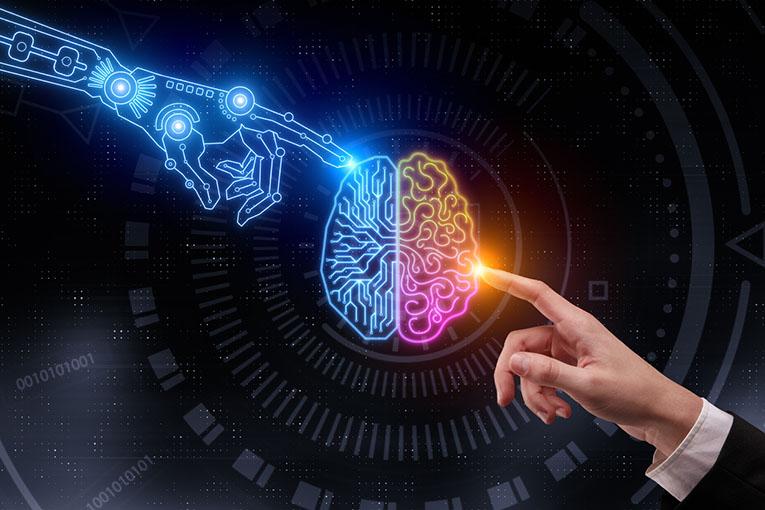
The nature of work has already fundamentally changed, yet I am still seeing leaders and teams operate like it’s 2002. A recent report from the McKinsey Global Institute predicted that by 2030 roughly 14% of the global workforce might need to switch occupational categories. Seventy-five million to 375 million people may need to switch occupational categories and learn new skills. That’s ten years away.
The trends show that full-time work is declining, work is increasingly complex, there is limited connection between traditional education and the work we do, dream jobs don't exist, and money is not a motivator anymore. We’ve been saying this for many years now, but the pace of change is accelerating. Yet I still work with people who are trying to put things in place so that “the change can stop”. I always say “I’m sorry, but the change is never going to stop”. This is not only relevant to industries and sectors that will be impacted by the rise of AI.
ALL industries and sectors will be impacted. From policy changes to the political environement to the way we purchase inventory and the way we deliver training... everything is changing.
Further to that, competition for the right talent is going to be fierce. Yet we no longer know what kind of talent we need. Many of the roles, skills and job titles of tomorrow are as yet unknown. Questions remain about how organisations can prepare for a future that can’t be defined. How will your employees need to change? How can you attract, keep and motivate the people you need?
It’s natural for the primary business shift to be in “reskilling our people". It seems a simple process. Define the new skills your people need. Find an appropriate course or training package. Reskill. But have you considered how complex reskilling will actually be? It is more than just a new set of work instructions. It will require a mindset shift for employers and employees alike. People with a fixed mindset believe that we are each born with specific skills and that this cannot be changed. By contrast, those with a growth mindset believe that skills are built and that new abilities can be developed through practice and effort. What will your business do if 50% of your workforce has a fixed mindset and don’t believe they can be reskilled? Conversely, what will YOU do if you are in a role that requires new skills? If we don't teach people how to have the right mindset for reskilling, then the skills won't even follow.
Before you start thinking of the job skills and work instructions your team will need, consider building these three mindset and resilience skills first so that your team is mentally prepared for the enormous changes they will be facing ahead.
1. Active learning with a growth mindset
The future of work will require active learning and growing. A growth mindset allows someone to take on new challenges, learn from mistakes, and actively seek new knowledge. Your future workplace is going to be taking on numerous problems, is going to need to fail fast and move forward, and is going to need to learn all-new ways of doing things. Take a moment to think about how vital a workforce with a growth mindset will be in an environment where the pace of challenge is accelerating. It’s one thing for employees to participate in change projects, it’s another to demonstrate the willingness to retrain and learn new skills.
2. Openness to embracing change
Stop chasing the “If only I could get here, then we will be ok” goal. So often I see teams and leaders chasing an endpoint with change, hoping that when it's done, then everything will settle down again. It's not going to happen. Chasing that kind of happiness by reaching a destination is only going to stress you and your teams out more. A better mindset to have is the ability to adapt. Responsible employers will help employees understand and feel comfortable with changing roles and futures. Employees need to be open to that change and adapt to the fact that nobody is immune from change. That’s from finance systems, human resources, the legal department, front desk, support workers, CEO and everyone in between. Everybody must be open to transforming.
3. Flexibility
We often talk about employers providing flexible workplaces and flexible work arrangements for employees. Have you considered that as an employee, you are going to need to be flexible too? If you think you can keep doing things the same way you've always done them because you don't NEED flexible work arrangements, then you should seriously take note. Due to the speed of change in the future workplace, people will need to be adaptable as required. Everyone will need to be flexible in the way they work and the way they achieve their goals. Shifting workplaces, sliding expectations, and new skill-sets are coming your way. Your goals today may not be your goals tomorrow.
If you’d like me to work with you or your team to develop the right mindset for the future of work and help prepare you for change, send me an email today! I also cover a number of these concepts in my book, launching this year. Don’t forget to sign up for my book launch list for offers and release dates.